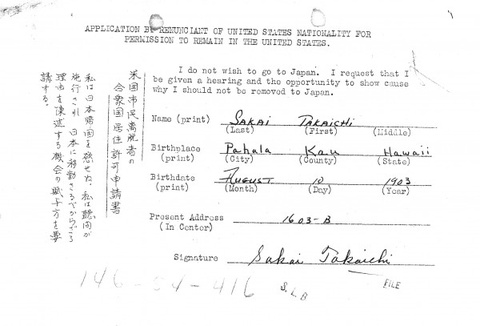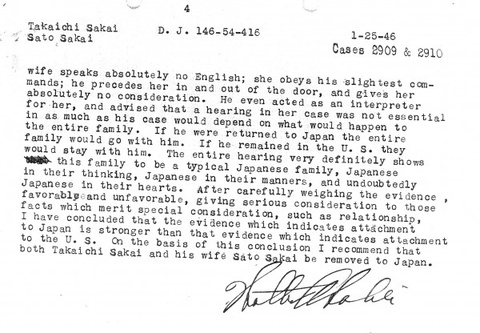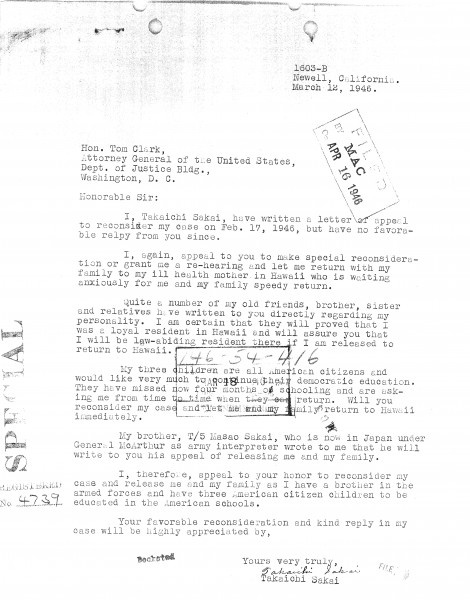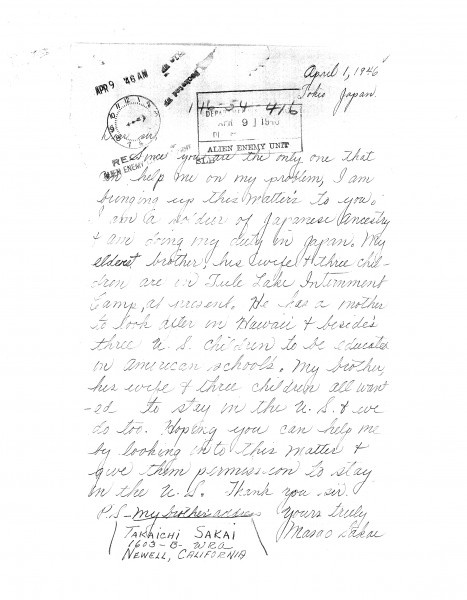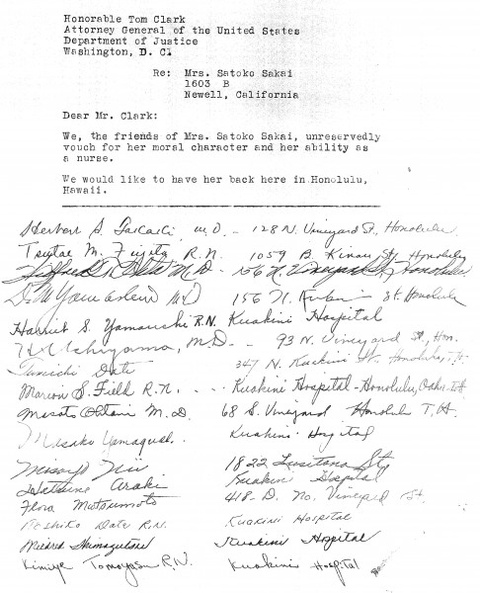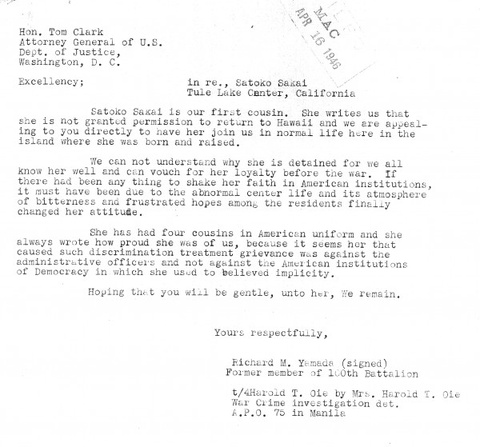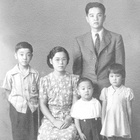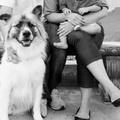Read Part 3 >>
When the war ended, my grandparents requested that they not be sent to Japan, despite the fact that they had renounced their citizenship. However, once a person willingly gives up their citizenship, it’s not easy to get it back. The following is the end of a FBI report on whether the family should be allowed to stay or not.
The part that stands out to me is:
“The entire hearing very definitely shows (crossed out) this family to be a typical Japanese family, Japanese in their thinking, Japanese in their manners, and undoubtedly Japanese in their hearts. After carefully weighing the evidence, favorably and unfavorable, giving serious considerations, such as relationship, facts which merit special consideration, I have conclude that the evidence which indicated attachment to Japan is stronger than that evidence which indicated attachment to the U.S. On the basis of this conclusion I recommend that both Takaichi Sakai and his wife Sato be removed to Japan.”
But my grandfather wasn’t leaving without a fight. He wrote letters and telegrams pleading his case directly to the Attorney General:
The two parts from this letter that makes me cringe – especially when you consider where my grandfather was writing this from – are:
“My three children are all American citizens and would like very much to continue their democratic education.”
“I, therefore, appeal to your honor to reconsider my case and release me and my family as I have a brother in the armed forces and have three American citizen children to be educated in American schools.”
My grandfather also got his friends and extended family to write to the Attorney General to reconsider and vouch for him. I found dozens of letters in his FBI file but three letters stood out to me.
The first is from Masao Sakai, my grandfather’s brother (whom I’d never known about until I saw this letter in his file). Masao was serving in the United States military and stationed in Japan during the occupation.
(That might be difficult to read, so let me transcribe it for you below)
April 1, 1946
Tokyo JapanDear sir,
Since you are the only one that can help me on my problem, I am bringing up this matter to you. I am a soldier of Japanese ancestry and doing my duty in Japan. My eldest brother, his wife + three children are in Tule Lake Internment Camps, at present. He has a mother to look after in Hawaii + besides three U.S. children to be educated in American schools. My brother, his wife + three children all wanted to stay in the U.S. + we do too. Hoping you can help me by looking into this matter + give them permission to stay in the U.S. Thank you sir. Yours truly, Masao Sakai.
The second letter is from people who had worked with my grandmother in a hospital in Hawaii. Their simple letter, signed by over 17 nurses, moved me almost to tears.
The third letter was from my grandmother’s first cousins. These two men were, like my grandfather’s brother, veterans of the United States military.
In the end, my grandfather was allowed to stay in the United States. It is difficult to say how much of an effect the letter campaign had, but I think it definitely didn’t hurt his cause.
The main reason people like my grandfather were able to stay was because of the hard work and dedication of the civil rights attorney Wayne Collins. Mr. Collins worked over 14 years and won back citizenship for approximately 5000 nisei renunciants — including my grandparents.
* This article was originally published on 8Asians.com on August 2, 2011.
© 2011 Koji Steven Sakai


